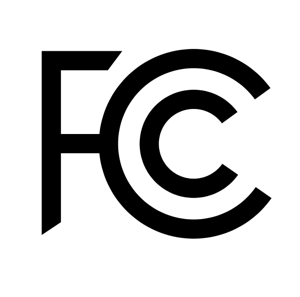Groups for and against Obama-era net neutrality rules are raising attention to a number of fake public comments filed with the Federal Communications Commission, and asking the agency to remove them. But statements from senior FCC staff and the agency’s own rules indicate they likely won’t matter.
Fight for the Future, one of the non-profit advocacy groups opposing the Trump administration’s plan to scale back net neutrality rules, sent a letter to the FCC Thursday signed by 14 people claiming fake comments supporting the plan were filed in their names.
“We are disturbed by reports that indicate you have no plans to remove these fraudulent comments from the public docket,” the letter reads. “Whoever is behind this stole our names and addresses, publicly exposed our private information without our permission, and used our identities to file a political statement we did not sign onto.”
The FCC has been receiving public comments on Republican Chairman Ajit Pai’s plan to roll back key portions of the rules for almost a month, and racked up more than two million comments already. But according to Fight for the Future, more than 450,000 of those are fake, with some including the names, addresses and other personal information of individuals like the 14 signatories on Thursday’s letter, ranging from California to New York.
Fake comments have been pouring in on the other side as well, with one user filing almost 1,000 identical comments supporting the Obama-era rules. Another 2,000 have been filed under the name of HBO’s “Last Week Tonight” host John Oliver, who dedicated a segment of a recent episode to calling on average internet users and trolls alike to comment on the proceeding.
The Daily Caller recently surveyed 10,000 pro-net neutrality filers. Of those surveyed, 39 percent denied having submitted a comment. The news site estimated at least 300,000 of the pro-net neutrality comments submitted to the FCC were fake.
InsideSources recently contacted a number of filers who submitted comments laced with profanity. Very few were willing to stand behind their statements.
While the use of personal information including addresses is troubling, the comments themselves are unlikely to have any impact on the proceeding itself. The FCC won’t be basing its decision on the number of comments filed for or against the plan, senior FCC staff said in April, but whether their arguments and data are factual and have sound legal backing.
“It’s not a counting procedure where you decide which side placed more comments in the record and that side wins,” a senior staff member said. “That is not the way the Administrative Procedure Act works.”
The APA sets down the guidelines for federal agencies’ rulemaking procedures. According to a guide published in the Federal Register, “This process is not like a ballot initiative or an up‐or‐down vote in a legislature.”
“An agency is not permitted to base its final rule on the number of comments in support of the rule over those in opposition to it,” the guide reads. “At the end of the process, the agency must base its reasoning and conclusions on the rulemaking record, consisting of the comments, scientific data, expert opinions, and facts accumulated during the pre‐rule and proposed rule stages.”
Many of the comments Fight for the Future wrote to the FCC about Thursday include, verbatim, the same message: “The unprecedented regulatory power the Obama Administration imposed on the internet is smothering innovation, damaging the American economy and obstructing job creation. I urge the Federal Communications Commission to end the bureaucratic regulatory overreach of the internet known as Title II and restore the bipartisan light-touch regulatory consensus that enabled the internet to flourish for more than 20 years.”
The group goes on to ask the FCC to notify everyone who’s been impacted, remove the fraudulent comments, release any information it may have on who filed them and call for an investigation into their possible illegality, citing laws against “making false statements.”
Both sides have alleged and highlighted numerous fake comments since the FCC opened its window for public comment in April, with some even leaving racist remarks aimed at Pai (so much so Oliver had to make a plea with commenters to dial back the offensive rhetoric).
During a press conference in May, Pai appeared to dismiss the concerns, noting it wasn’t the first time the FCC’s received fake comments.
“Fake comments were filed in the [previous net neutrality] proceeding under names like Donald Duck, Mickey Mouse, and Stalin, just to name a few,” Pai said. “This time around I think the bottom line is I urge everyone who’s interested in this issue to participate in the process in an honest and forthright way.”

